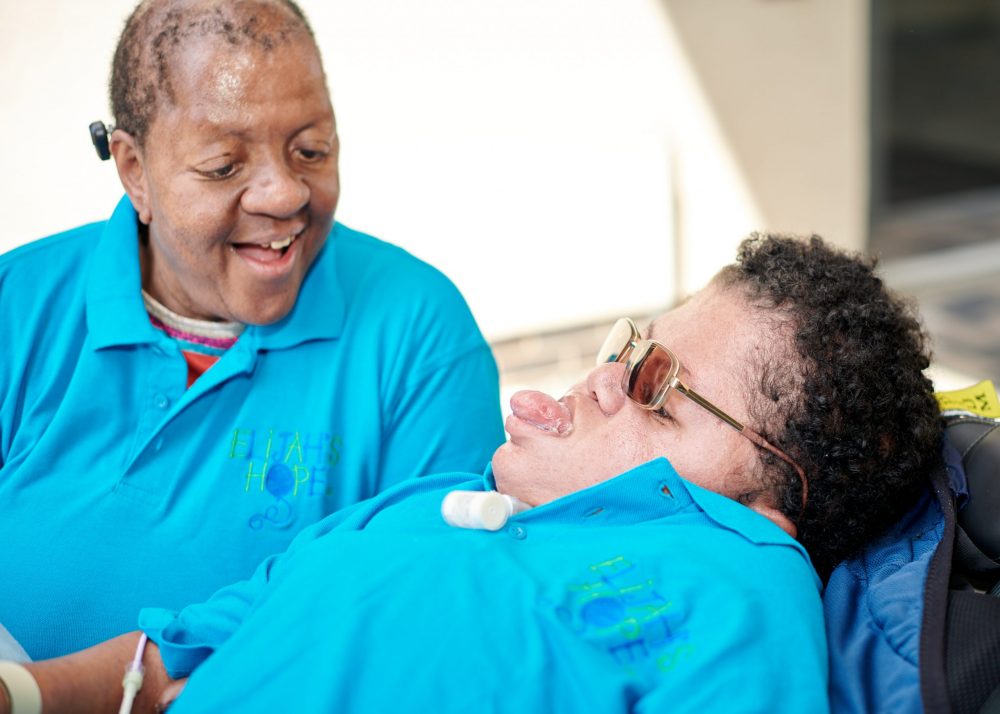
This week is National Carers Week (6th-12th June 2022), where unpaid carers everywhere are celebrated. Kaddy Thomas is the Founder of the Carers Collective and is herself a carer to her 16-year-old son Elijah. She’s written this feature exclusively for We Are The City on why we should never overlook the role that unpaid carers play.
Low paid? On benefits? Or perhaps selfless individuals dedicated to helping others?
When in fact a carer is no different to you or I, or anyone else.

Elijah has complex needs resulting in a care package and a full-time team of health professionals. We have been in and out of hospital so many times and I have gained so much experience over the years I am now an expert in managing a complex package of care.
Yet I wanted to know what other carers thought about this subject so when writing this article, I went to some carers in my community and asked them the question – the responses were moving and passionate.
“Becoming an unpaid carer could happen to anyone at any time. It takes one accident, one act of God, one birth, or one death to throw you and your life into chaos.”
This leaves many people with no choice but to pick up the pieces or step into the role of a full-time carer.
“Unpaid carers had dreams, goals, degrees, careers, plans that came to a sudden halt at the birth of our medically fragile/complex children.”
Many of us have to give up work, a few of us receive carers allowance and other benefits and some of us have to change our working lives and jobs to accommodate our caring responsibilities. In many cases, it would cost more to pay for an alternative carer than to forego a salary themselves.
“We are not just an unpaid carer, we have to advocate for our relatives, fight a broken system, break down walls as no-one will help us. We give up our social lives and free time is rare. We have mountains of day-to-day mum and care duties. I could never hold down a job as there are not enough hours in the day, but we are treated like scrounges because we don’t work and it’s exhausting.”
A child or person who requires round-the-clock care would otherwise cost taxpayers for their care.
Without a carer investing their time, effort, and resources in their caring role it would be left up to the government to do it. And we all know that the care system could not cope – it would collapse.
If we look at it from a human perspective, the benefits a carer brings to their loved one are endless.
Many carers I spoke to, say they feel they have no choice and often feel like they’re negotiating with family and friends to cover ‘shifts,’ in a system where they have to shout to be heard.
“Who would have looked after Alby if I wasn’t here? The council gave me fifteen hours, but I was expected to cover the rest and if I didn’t, what would have happened to him? He can’t prepare a meal, make a cup of tea, needs help with personal care etc. We’re expected to pick up the pieces and cover the shortfall from social care.”
As a result, they have become multi-skilled professionals and care coordinators. They think creatively to find solutions and become experts in saving health and social care money because of the role they play. They have excellent communications skills and can liaise with a wide variety of health, medical and social care professionals.
They become excellent project managers, counsellors, and problem solvers – skills which most workplaces would be envious of.
They know the health and social care system inside out as it’s important to know their rights as much as it is the rights of their loved ones.
I recently interviewed several female carers for International Women’s Day. They all had different circumstances and backgrounds – all were inspiring and driven. But what really intrigued me was how their caring roles had impacted their lives in a positive way. One was a campaigner and creates community programmes, bringing people together. Another had trained as a nurse and others had created businesses where they were giving back and sharing the knowledge and expertise, they had accumulated to help other carers and parents navigate this crazy, relentless, and wonderful world that encompasses the life of an unpaid carer.
 About the author
About the authorKaddy Thomas is the Founder of the Carers Collective, a space for unpaid carers to come together to find connection, support and resources to ease isolation, boost wellbeing and encourage empowerment.
